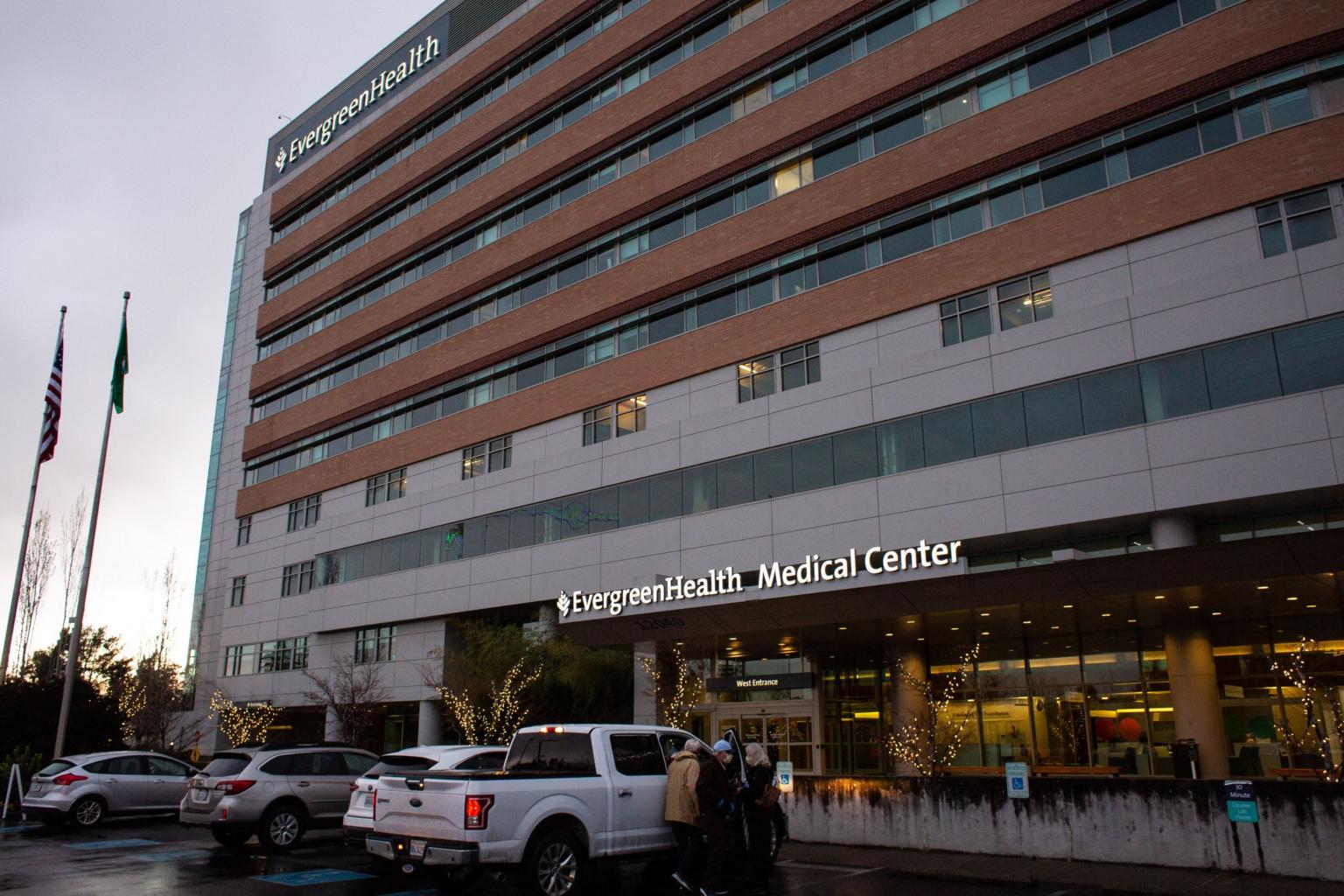A year on, doctor recalls first reported US Covid-19 death
Sign up now: Get ST's newsletters delivered to your inbox

EvergreenHealth Medical Center Kirkland reported the United States' first death from Covid-19.
PHOTO: AFP
Follow topic:
SEATTLE (AFP) - This time last year, infectious disease physician Dr Francis Riedo was having what he'd consider a fairly typical Friday - and didn't suspect his hospital would soon report the United States' first death from Covid-19.
It was the middle of flu season, and several patients were being treated in the intensive care unit of EvergreenHealth Medical Center Kirkland, a suburb of Seattle.
Two of them were on ventilators, critically ill with lower respiratory infections, but "there was no clear diagnosis," Dr Riedo recalled.
A handful of Covid-19 cases had so far been detected in the country, and the Centres for Disease Control and Prevention (CDC) had just changed its guidance to recommend testing people with suspicious symptoms, even if they hadn't travelled to Wuhan, China.
That evening, "we filled out the three pages of paperwork for each, and the following morning, on Friday morning, collected the swabs of these two individuals and sent them off to the state lab testing."
It happened to be the first day that state labs were trusted with testing samples - prior to that, the specimens were all sent to the CDC's headquarters in Atlanta.
Dr Riedo wanted to make sure the swabs were correctly collected, and hand them over himself.
He'd certainly been keeping up with the mysterious new disease that had been ravaging China but wasn't really worried.
"I dropped those specimens off and went about my day," said Dr Riedo. "I honestly did not think that this was going to be more than an exercise."
He then went to see one of the two critically ill patients - whom he had happened to have treated five years earlier, too.
"By the time I got there in the afternoon, he had already passed away," he said.
The man had been in his fifties and in poor health. His family had come to see him, and it wasn't known at that point that he had had Covid-19.
Dr Riedo didn't expect the test results to come back for several more days, but that evening, he received a call from the county health authorities, informing him both samples had returned positive.
"My initial response, I have to say, was a bit of skepticism," he said, recalling widespread reporting at the time of defective tests.
The officials, however, were adamant.
"After that moment of skepticism or incredulity, I said, 'This is it, this is really where it begins.'"
'Great deal of unknowns
The revelation unleashed a rapid chain of events.
Dr Riedo spoke with the family of the deceased and had to respond to inquiries from the county authorities, as well as talk to the nurses about remembering masking practices. The names of everyone who was exposed were also collected, so that they could be tested as well.
"This immediately launched a huge investigation," said the doctor.
Since the two individuals had no known connection to each other, doctors quickly realised the disease was already spreading in the community. The announcement was made public the next day, Feb 29. And the cases continued racking up.
"These two individuals turned into 31 within five days, and hundreds within weeks," continued Dr Riedo.
Officials later confirmed that others had in fact succumbed to the disease as early as mid-February, in California.
Looking back, Dr Riedo recalls "there were a great deal of unknowns" at the time.
"I don't think we ever imagined that it would be a magnitude that we've experienced," he said. But within weeks, "ambulances were literally lining up outside the emergency department to drop off patients."
The United States has been hit hardest by the pandemic, and earlier this week crossed the latest grim milestone of 500,000 deaths.
Even with the early mayhem, "I don't think anybody could have expected half a million," Dr Riedo concluded.

